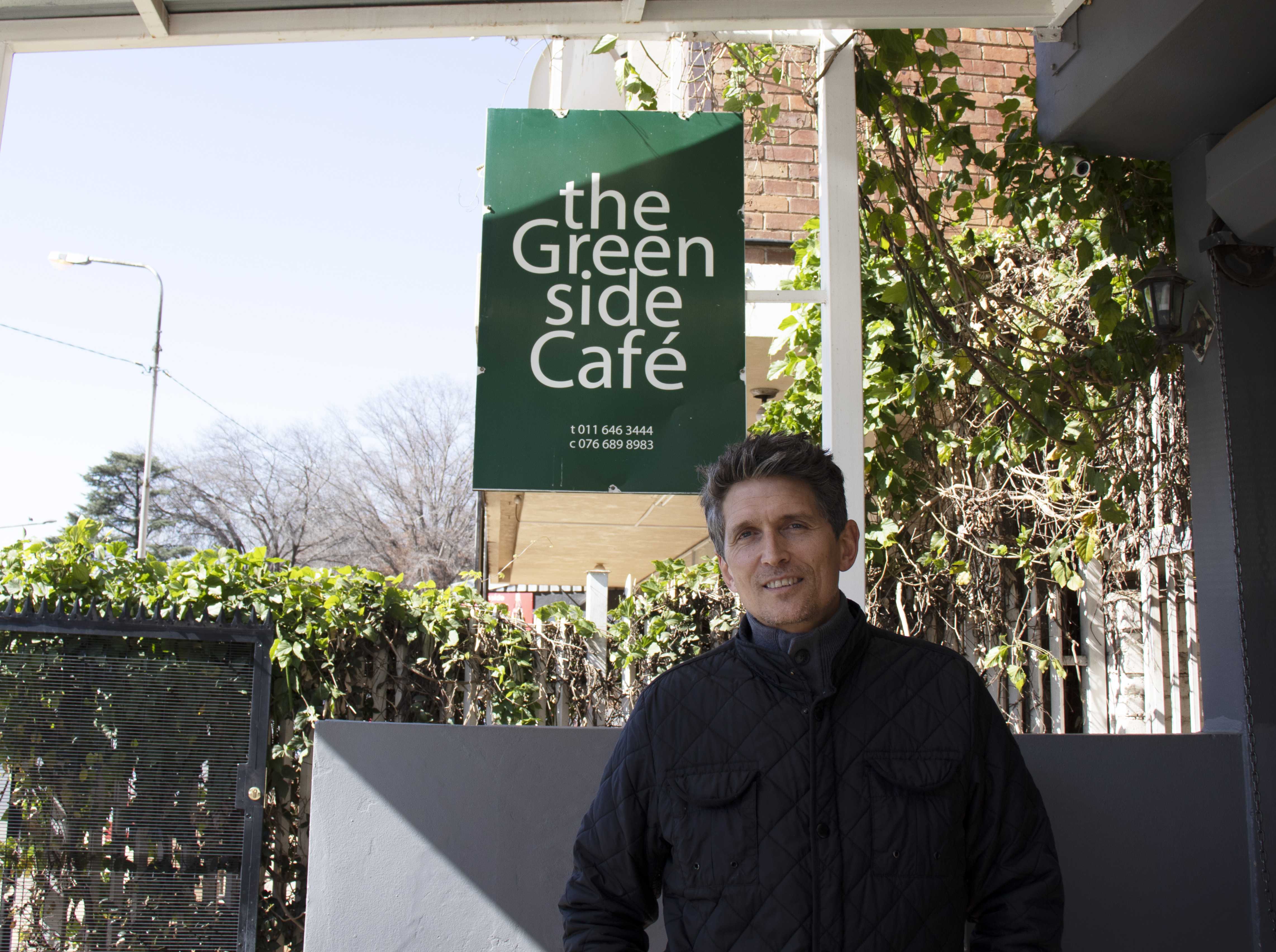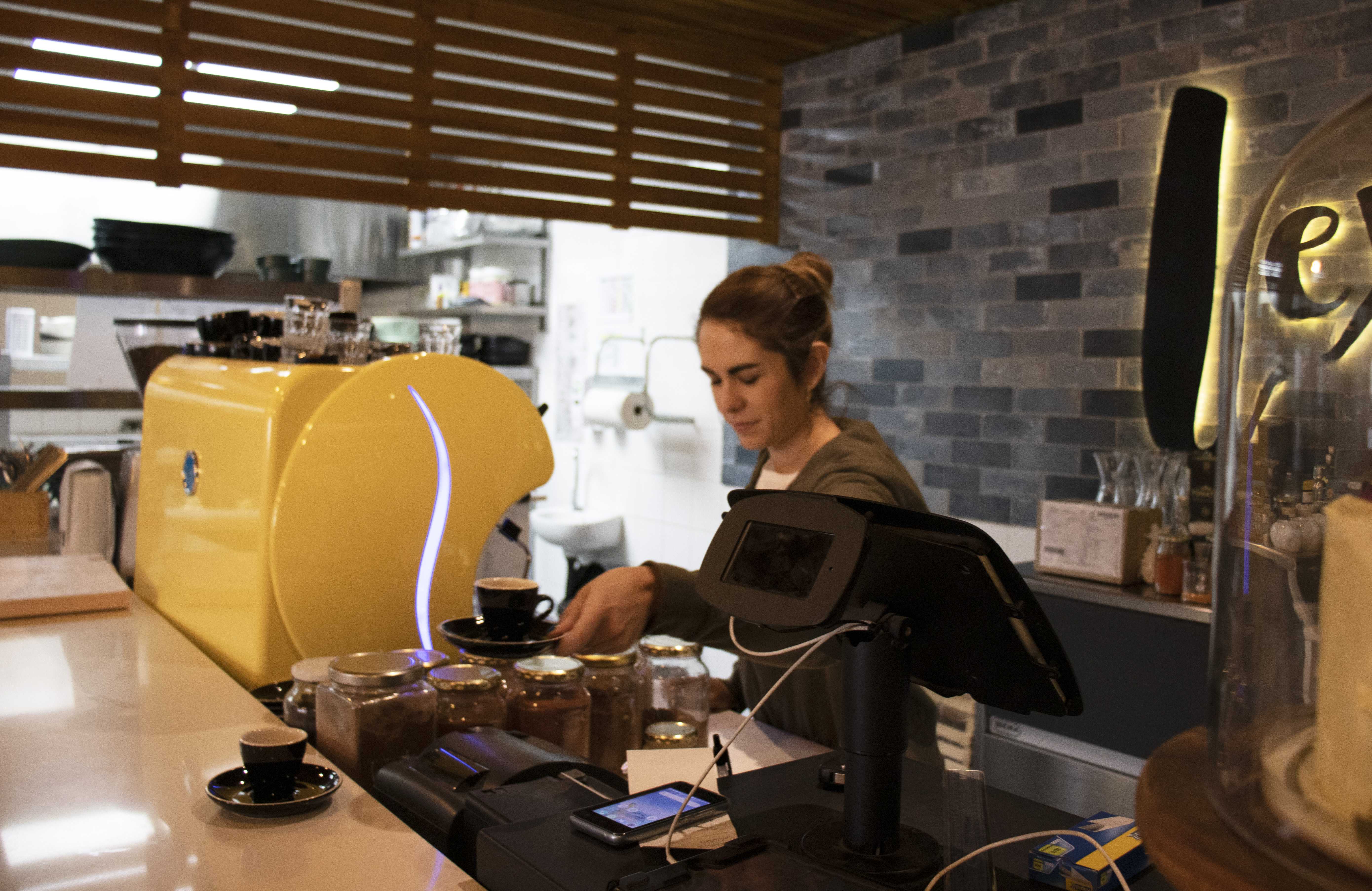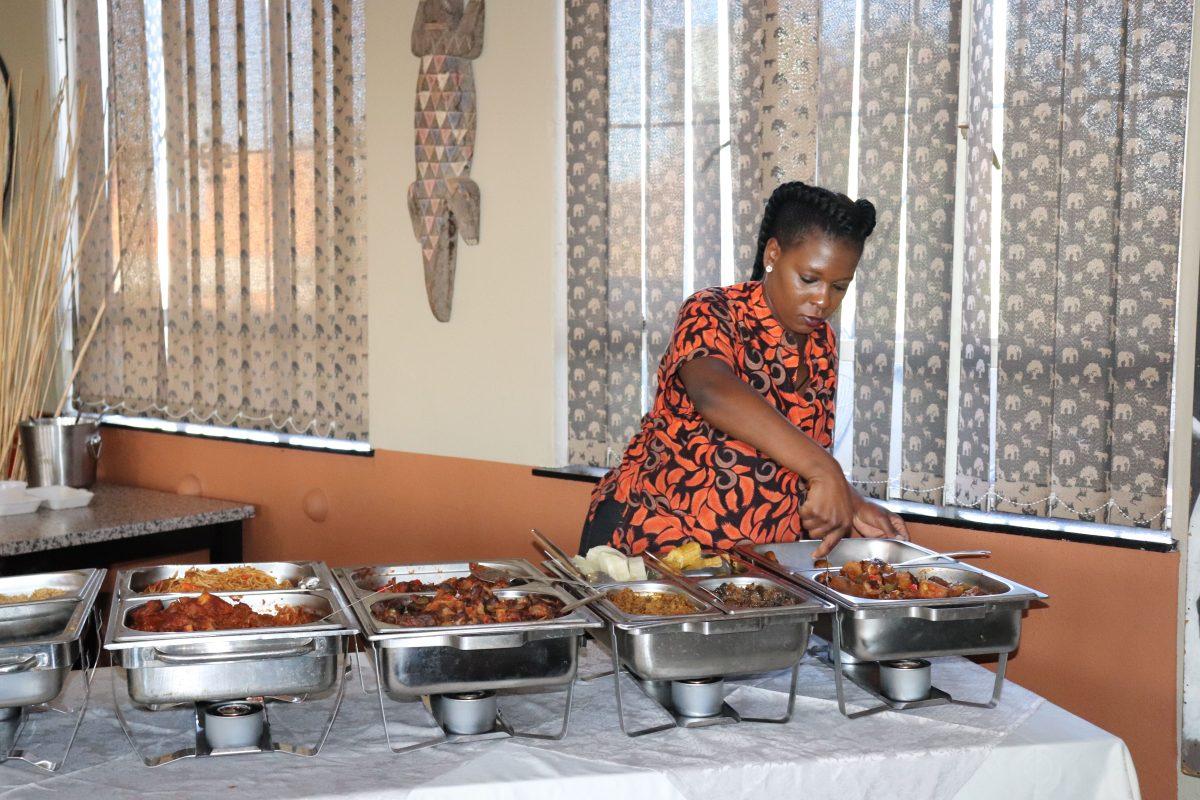Johannesburg, South Africa — Many people associate African cuisine with meat, but at Hombaze Restaurant in Johannesburg, the traditional African selections on the menu are mostly vegetable-based and vegan.
For Kenn Ayere, owner of Hombaze, offering a menu that gets back to African roots means creating dishes that use beans, plantains and traditional African spices like ikposa, unien, oziza and utazi. Customers, who come from all over the world to sample Ayere’s vegan African cuisine, can choose from items such as yam pottage (stew), pap and morogo (ground corn porridge and spinach), and beans and dodo (fried plantains).
“Our ancestors ate a lot of organic food, food that was not tampered with, meals that were not produced in laboratories,” said Ayere, who is originally from Nigeria.
Hombaze attracts a loyal following of Nigerian customers, who frequent the restaurant for its vegetarian options, made with Nigerian spices, said Chantel Pienaar, Hombaze’s manager.
“They like the plantains, the rice, all the vegetarian,” Pienaar said.

As consciousness about health and diet is on the rise in South Africa, more restaurants are adding plant-based and vegan options to their menus.
“Health consciousness has gone higher and the same thing applies with food,” Ayere said. “A lot of people who can afford to slaughter cows and eat them every day will tell you, ‘Sorry, I don’t eat red meat.’ The guy will be very happy to have a bowl of salad and vegan meals and be content because it is cheaper to have that then spend hundreds of thousands of rands on the doctor.”
Before modernization and wider availability of food at supermarkets, many Africans ate a primarily plant-based or vegan diet, Ayere said. It was only wealthy people who could eat a lot of meat. Culturally, consuming a lot of meat was a sign of affluence and wealth.
“In the past, consuming of animals were mostly restricted to ceremonial periods,” Ayere said. “It would be very rare for people to bring up a ram, goat, cow for slaughter and consumption.”
Even now, an affordable plant-based diet for South Africans depends on where they live and work. Although vegetarian restaurants or takeout shops have existed for years in the former apartheid-era townships, restaurants that cater to vegans are located in primarily affluent areas of the city.
Yet Dimitri Gutjahr, owner of Greenside Cafe, an all-vegan restaurant in the Greenside neighborhood of Johannesburg, said overall, simple vegan food is inexpensive.
“Meat and fish are more expensive,” Gutjahr said. “A vegan diet can be very sustainable.”
At Greenside Cafe, which opened in 2009 and bills itself as the first vegan restaurant in Johannesburg, Gutjahr has created his vegan menu based on his years of traveling the world.

Dishes have Italian, Asian and English influences. Items on his menu include vegan versions of spaghetti bolognaise, green thai curry and sushi. He also offers a version of the Full English Breakfast, which includes scrambled tofu, vegan bacon, avocado, Mexican beans, grilled tomatoes, mushrooms, mash wilted greens, carrots, beets, toast and jam.
“We have sold thousands of meals and have never killed anything,” Gutjar said. “People enjoy the meals, they come, they eat and they are happy. Greenside Cafe has always made me think it is a little light in Johannesburg, shining a new concept, a new idea. With individuals hearing more about veganism, it has brought an energetic level, and I hope it has been good for Johannesburg.”
Gutjahr, who has been vegan himself since 2002, said the government and large corporations in the meat industry have long convinced people that meat was the best and only option for meals. But now that people can access their own information, they can make more informed decisions.
“Now that we’ve got information technology, I really think it is going to radically transform humanity,” Gutjahr said.
Lexi Monzeglio, owner of Lexi’s Eatery, a restaurant in the affluent neighborhood of Sandton City, also said education and public awareness about diet are key to improving society’s health.

Lexi’s menu is 95% plant-based, with options that range from french toast to vegetarian burgers made out of sweet potato and chickpea or mushroom, quinoa and walnuts. There is only one meat and one fish option on the menu. Monzeglio said ideally she does not want those options on the menu, but offering them is actually one of the reasons her business has done so well. Non-vegans may start with a burger the first time they visit the restaurant, but will return to try other items on the menu.
“I had a bit of hate from the vegan police, and still there is a pocket of Johannesburg vegans that will not come here,” Monzeglio said. “My thing is that I am trying to convert people. I am trying to provide a space for people that don’t know, that are curious or want to be vegan but are finding it a bit difficult, or want to be plant-based, vegetarian or somewhere on the spectrum. I want to give them a space where they can learn more about it.”
Lexi said many South Africans learned to see diet as simply an add-on to health, but they are now realizing that it is foundational to healthy living. Getting that message out to more people is key.
“The more we educate from the bottom up, probably the greater change there will be throughout the country because that is the largest part of the population,” Monzeglio said.
But finding a solution in a country where there is so much poverty, unemployment and lack of resources can be an overwhelming challenge, Monzeglio said. Making charity and food development work plant-based is one way to help.
“Creating sustainability farming solutions, whether it is telling people it is plant based or not, it is providing a solution to a different problem and if its a plant based solution than it is already education people.”
Ultimately, Monzeglio said the issue is less about labeling yourself vegan or not and more about eating to benefit your health.
“Make the changes that you can make and advocate for the changes that you can make,” Monzeglio said. “Any small change you can make is a change for the good.”





































